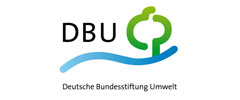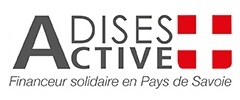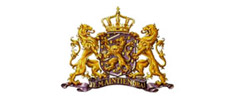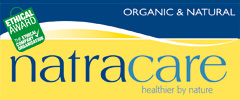Bulgaria - Safe Sanitation, Health and Dignity
Implementation of dry urine diverting toilets and and waste water soil filters for schools and private households
19.04.2010
| Countries: | Bulgaria |
| Donors: | Fondation Ensemble, France |
| Partners: | Earth Forever Foundation |
| Issues: | Water & Sanitation |
| Duration: | 10/2007 - 09/2010 |
The project "Safe Sanitation, Health and Dignity - Bulgaria" takes place in three provinces – Stara Zagora (10 villages), Pleven (2 villages) and Sofia, Pravets municipality (2 villages). Implementing organizations: WECF, Netherlands, Earth Forever Foundation, Bulgaria. The project is funded by Fondation Ensemble.
The Project
The project “Safe Sanitation, Health and Dignity“ in Bulgaria will implement dry urine diverting toilets for schools and private households, waste water soil filters and school demonstration gardens. This ecological sanitation technique has given good results in previously implemented projects in Bulgaria.
This project tries to raise awareness on good and safe sanitation in rural areas and on hygiene and health, and creates an enabling environment for replication and up scaling through a team of local trained ecosan builders.
Background information
Bulgaria is a country in the Balkan peninsula with a population of about 7.500.000 people. About 88 % of the territory of the country is rural area. There are 3.850 settlements with a population below 2.000 people and in these settlements reside nearly half of the rural population. Almost 96% of the territory of the country has central drinking supply system. The quality of the water is good, despite in some places shortages of water are observed, especially during summer time. The sanitation infrastructure is insufficient both in urban and rural areas. There are more than 2.1 million people in rural settlements which lack of proper sanitation. The people usually use pit latrines or soak aways which infiltrate in the underground water, some of them overflow into the streets, others overflows in neighbours gardens. The lack of sanitation in rural areas could be considered as a main problem in the countries of Eastern Europe. Insufficient sanitation often leads to various diseases and to groundwater pollution in the rural areas.
Goals
The main goal of the project is to improve sanitary conditions in schools and households in rural settlements in Bulgaria in a sustainable and affordable way. Current conditions in rural schools do not meet standard hygienic requirements. Every school uses a pit latrine for a toilet. These toilets are very inconvenient especially for girls; most children do not even use the toilet during the day because of bad conditions in summer, let alone in winter.
The project plans to train local builders for correct building of ecosan toilets, to involve local population to the development of water safety plans.
Also school children will be educated on the relationship between safe sanitation, water protection, hygiene and health, and will be actively monitoring drinking water quality on nitrates (sanitation pollution indicator).
Local families will be trained to develop an organic waste composting program, allowing improved agricultural activities in these impoverished communities greatly dependent on good yields.
Additionally some case studies will be produced with detailed analysis of the constructed systems, there is a close cooperation with the Trakia University, Stara Zagora municipality. The results of the project implementation will be of good base for policy recommendations and will be presented at local, national and international level.
The project will have long term positive effects: education of local citizens reduction of groundwater pollution, improved health of the villagers, and reduction of poverty. Possibly, urine as fertilizer and compost as soil conditioner will increase harvests yields.

Overflowing septic pit in garden of household in a village, NE Bulgaria
Description of the project areas
The project takes place in three provinces in Bulgaria:
1. Stara Zagora province
The total population of the province is 391.151 people. The life standard in the villages included in this project has drastically deteriorated after 1989 due to constant agricultural reforms and lack of opportunities for the workforce. The villages are lagging behind in infrastructural development and maintenance, incl. safe drinking water and adequate sanitation facilities. Most of the schools in the region use pit latrines built on soakaway pits. The village schools are very small, most of them serve more than one village.
2. Pleven Province, Pordim Municipality
The area of the municipality is 255 sq. km and total population of 8.300 inhabitants living in 8 settlements. None of the schools in the province has a sewer system; all of them are connected to centralized drinking water supply system.
3. Pravets Municipality, Sofia province
Pravets municipality is situated in central western Bulgaria, located approximately 60 km from the capital Sofia. It has a population of 4.512 people, and together with the belonging 9 villages - 9.000 inhabitants.
The population in the villages consists mostly of Roma people, so are the pupils in the school. The village schools have poor sanitation conditions, all the school use pit latrines. The toilets in the schools are in bad condition, attracting the flies and do not cover the hygienic requirements.
Expected Results in Bulgaria
- Implementation in 10 villages - 20 indoor household toilets, 4 new ecosan school toilet (1 outdoor, 3 indoor), 4 school projects will test sanitized urine and dehydrated faeces in demonstration vegetable gardens, 10 grey-water filters will be built in 10 villages and 4 grey-water filters will be built for the schools.
- Capacity Building – tutoring programs, trainings, development a water safety plan for the villages, etc.
- Up-Scaling – case studies, cooperation with the Trakia University in designing and monitoring of the dry urine diverting toilets and development of a business plan for local production of ecological equipment.
What is a Dry Urine Diverting Toilet System?
A urine diverting toilet has two outlets and two collection systems; one for urine and one for the faeces, in order to keep these excreta fractions separate. Other than that, the system has mainly conventional technical construction material/devices, even if they are used in completely or partly new ways.
Urine and faeces are collected in separate containers, stored or treated, and finally used in crop production. Grey water is treated separately, and this is not in the scope of the report as mentioned above. Urine diversion in itself shall be seen as a complementary technology since the other wastewater flows (faeces, grey water and storm water) also need to be handled and treated.
This project will apply two types of ecological sanitation/wastewater treatment systems in Bulgaria:
- dry urine diverting toilets
- soil/sand waste water filters
It has been chosen for these two types of ecological sanitation / wastewater treatment as they provide the highest level of hygiene, environmental and health protection at the lowest price and can be produced and maintained locally with no need for highly skilled experts.
Financing
The project is financed partly by Fondation Ensemble. Future co-funding will include local authorities and another French organization.

Implementing organization on a local level
The local organization which carries out the project in Bulgaria is Earth Forever Foundation, with executive Director, Mrs. Diana Iskreva.
Earth Forever Foundation carried out a MATRA project "Developing a model for sustainable water and waste management in rural areas in Bulgaria". During this project several ecosan systems were constructed in the villages Sulitsa and Stara Zagora Spa.
Contact persons
- Bistra Mihaylova, project officer Bulgaria: bistra.mihaylova(at)wecf.eu
- Anne Barre, project leader: anne.barre(at)wecf.eu
Donations
If you want to donate money to this project, here are the bank account numbers for tax deductable donations:
The Netherlands: Women in Europe for a Common Future, WECF
- Account Number: 435 42 99 14
- IBAN: NL 84 ABNA 0435429914
- BIC: ABNANL2A ABN-AMRO Utrecht
Germany: Women in Europe for a Common Future, WECF e.V.
- Account Number: 13 1390 50
- Bank code: 701 500 00
- SWIFT: SSKMDEMM
- IBAN: DE68 7015 0000 0013 1390 50
- Bank: Stadtsparkasse München
Related News
Seminar in Bulgaria dedicated to first constructed wetland in Bulgaria
Seminar for professionals and authorities during the construction of the first constructed wetland in Bulgaria – a sustainable waste water system
02.12.2010 | Bistra Mihaylova & Claudia Wendland
Roundtable Dialogue on wastewater solutions for Bulgaria and Romania - Report
New European Member States Romania and Bulgaria address the looming impossibility of achieving their obligations under the EC Urban Waste Water Directive and Water Framework Directive – roundtable in Sofia looks at solutions
24.04.2010 | Sascha Gabizon
Improving school sanitation in a sustainable way - WECF publishes article in Science Direct
Article by Margriet Samwel and Sascha Gabizon, WECF
02.10.2009 | Margriet Samwel and Sascha Gabizon
Delegation visits Constructed Wetlands in Bavaria
WECF took Bulgarian officials to a constructed wetland in operation
02.04.2009 | Bistra Mihaylova
Report on Safe Sanitation, Health and Dignity - Bulgaria Project
Report on the project "Safe Sanitation, Health and Dignity - Bulgaria" which is being carried out in three provinces in Bulgaria – Stara Zagora (10 villages ), Pleven (2 villages) and Sofia, Pravets municipality (2 villages). The project is sponsored by Foundation Ensemble and coordinated by WECF.
21.11.2008 | Bistra Mihaylova






































